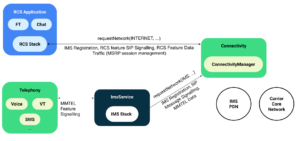Network automation is a process that automates the configuration, management, testing, and deployment of network and security devices. It enables IT departments to speed application deployment and maximizes network efficiency across the data center and cloud environments. Automation can improve your networks’ speed, reliability, quality, and intelligence if implemented correctly. However, it should only be implemented for valid reasons.
Increased network resilience
What is network automation? Network automation helps increase network resilience, which is essential for organizations operating in a complex digital environment. In addition, it’s a great way to reduce human errors and optimize your network infrastructure for maximum performance. A good network automation solution also ensures compliance with security regulations. This is crucial for business leaders, who must demonstrate that their networks are safe and secure. It’s also a key component of network modernization, enabling organizations to adapt to the burgeoning growth of data and devices. This helps businesses meet changing customer demands while reducing operational costs and improving productivity. To achieve network automation success, operators must break free from traditional silos and address all aspects of their network infrastructure. This includes network devices, network teams, and operations support systems. One of the biggest challenges is integrating network automation tools into legacy network infrastructure, but there are ways to do this. In the future, network automation will evolve into hyper-automation, bringing legacy devices under the same management umbrella as today’s solutions. Integrating low code tools and orchestration platforms will be more accessible, and it will be possible to automate and orchestrate an entire network architecture from a single centralized control panel using vendor-agnostic solutions.
Increased network efficiency
Networks have become increasingly complex and challenging to manage over the years due to the growing amount of data and devices. However, this complexity has also prompted businesses to seek better networking options. One of the main benefits of automation is that it increases network efficiency by reducing human errors and increasing the overall reliability of the network. Moreover, automation can also help companies improve customer satisfaction by providing them with a more responsive and reliable network. It is important to note that while automation can reduce human error, people still need to perform specific tasks. It is, therefore, essential to ensure that a person is aware of the automation process and knows what is expected of him. This will help to avoid unnecessary mistakes and save time and resource, which can be used for other tasks. It will also enable IT teams to focus on more strategic and essential work, which can lead to better business outcomes in the long run. Another benefit of automation is that it enables network admins to create a single source of truth for all configurations across the company. This will allow them to prevent potential human errors and ensure that all applications work correctly. Automated processes also enable network infrastructure to scale at a rate consistent with the business’s demands. This means that if there is an increase in traffic, the system will be able to respond quickly. This will increase your network’s resilience and ensure it always functions at peak capacity.
Increased productivity
The networking environment is becoming more complex due to rapid technological advancements. As a result, network devices have to be managed more accurately and efficiently. In this situation, network automation becomes an important tool to solve these problems. It helps businesses cope with the increasing complexity of networks while lowering their operational costs and reducing human errors. It allows the IT team to focus on strategic initiatives that improve productivity, identify new opportunities, and drive business improvements and innovation. This relieves them from repetitive tasks prone to error, thus freeing them up for higher-value activities.
Moreover, network automation enables deeper network analysis that correlates data from different sources, including mobile devices, configuration files, event logs, and switches. This allows deep insights into performance, security, and resource allocation. With the help of automated workflows, it’s easy to automate everyday tasks like bandwidth usage and analysis, inventory management, dynamic provisioning, and data backup. It also reduces the time taken to make changes to the network and eliminates risk. The main benefits of network automation include reduced human errors, increased network resilience, and improved network efficiency. This is because network automation replaces manual processes with software to enhance the network’s overall functionality.
Reduced human errors
Human errors are one of the significant causes of network failures. Minor mistakes like a typo or an error in a device configuration often cause them. These errors can lead to service errors, network configuration drift, and even downtime. Automation software enables you to mitigate these risks by implementing automated processes that prevent such errors. In addition, they help minimize configuration errors to reduce network configuration drift and improve overall network performance. Automating network processes can also allow you to scale your operations without compromising the reliability of your networks. This is especially true if you use centralized network management to monitor network devices, set policies, and segment your network.
Moreover, eliminating manual tasks that drain your resources can save you time and money. These include troubleshooting and installing new devices. Another benefit of network automation is that it can help your team increase productivity. With less time spent on tedious manual tasks, your team can focus on more critical business objectives and strategic goals. In addition, network automation can help you reduce the risk of data breaches and cyberattacks. It can also prevent regulatory violations and equipment failure by enforcing security policies consistently throughout your network.






More Stories
How to Effectively Remove ChocoEukor from Your Android Device
From Pixels to Perfection: Mastering the Art of Web Design
How to Stop TinyTask: 10 Effective Techniques for Gamers and Tech Enthusiasts